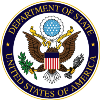#COP21: What it’s Like to be a U.S. Negotiator in Paris
By Georgia Mu serves as Assistant Director of the U.S.Center, a public diplomacy space organized by the U.S. Department of State Department at the UN Climate Change Conference.
Negotiating can be hard work. Whether it’s buying a new car or pressing for a higher salary, many people find negotiating intimidating.
Now, imagine negotiating one of the most important issues facing the planet today, with consensus required from 196 separate parties, in a limited amount of time.
That is the challenge international climate change negotiators face in Paris for two weeks during the UN Climate negotiations also known at COP21 — the 21st Conference of the Parties.
For the U.S. delegation, work is divided by issue. Some negotiators focus on challenges related to tracking greenhouse gas emissions. Others specialize in areas including forests, finance, adaptation, and science. Most negotiators also have a regional focus, often to build stronger relationships with other country delegations and to more clearly understand those with a stake in their issue.
Negotiators may have a fairly regular schedule during the COP, but it is grueling. Farhan Akhtar, who negotiates adaptation and science issues, says “We start off with reviewing negotiation schedules and text that has been released overnight. We’ll discuss as a delegation our positions and text proposals, and then reach out to other countries to discuss items prior to going into the negotiating room. We work through our proposals in a session. And hopefully, hopefully wrap up and finalize text that day.” Another negotiator, Ashley Allen, added, “From the early hours in the morning until late, late at night, we are running from events, to bilateral meetings, to negotiating sessions, doing everything we can to come to resolution on each of our issues.”
The two weeks of the COP conference is always a challenging time because the stakes are so high. Tim Lattimer, who coordinates the U.S. delegation, says, “This process is a marathon, not a sprint. It’s easy to run ragged or get ill when you are driving yourself all hours of the night because you are either in negotiations or reviewing developments to position the U.S. for the next round. It requires a lot of physical, mental, and emotional stamina, as well as the ability to work well with your teammates to advance U.S. interests.”
One common myth about U.S. negotiators is that they have adversarial relationships with representatives of other countries. “This process only works if you are able to build relationships and trust with each other across the table,” says Tim. Farhan added, “One of the best parts of being a delegate to the COP is that it would seem like it’s a hugely confrontational space, but it’s actually quite collaborative and we work together, rather than against each other, to understand the other country’s position.”
When COP21 closes in Paris this week, U.S. negotiators are hopeful their hard work will pay off with an ambitious, long-term agreement that involves all countries. But even landing a successful agreement in Paris doesn’t mean the work is over. Climate change is bigger than one conference.
Negotiators are mindful of what a privilege it is to represent the U.S. on one of the most challenging issues of our time. As Tim put it, “we are representing our respective countries, but in the end we are all human beings on this planet.”
Editor’s Note: This blog was originally posted on DipNote, the U.S. Department of State’s Blog.
